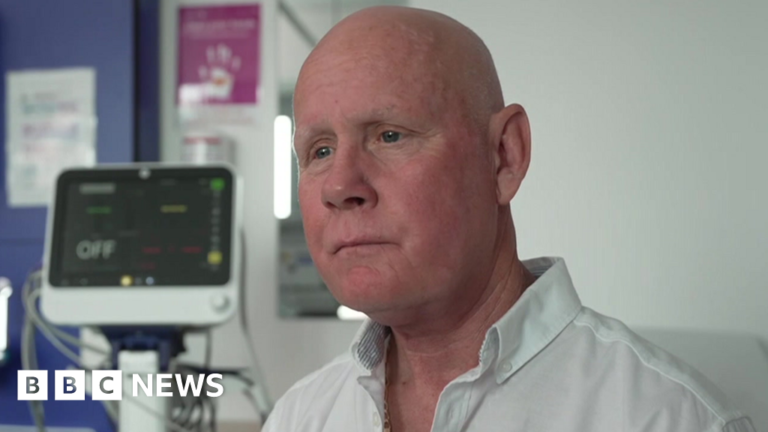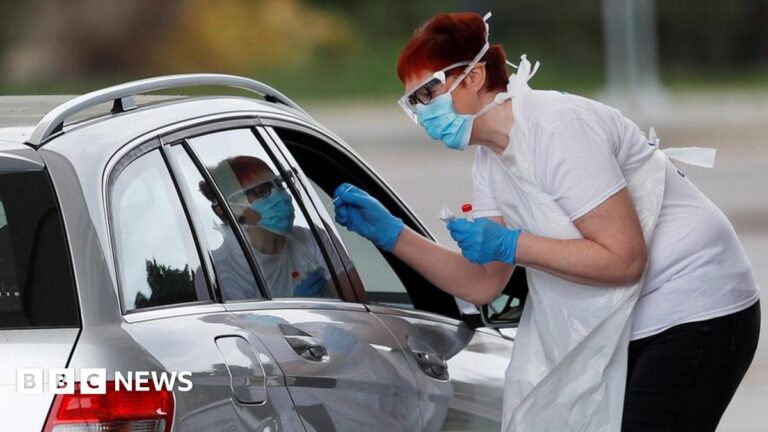Here is the plain text of the article:
During his Senate confirmation hearings to be health secretary, Robert F. Kennedy Jr. presented himself as a supporter of vaccines. But in office, he and the agencies he leads have taken far-reaching, sometimes subtle steps to undermine confidence in vaccine efficacy and safety, public health experts say.
The National Institutes of Health halted funding for researchers who study vaccine hesitancy and hoped to find ways to overcome it. It also canceled programs intended to discover new vaccines to prevent future pandemics.
The Centers for Disease Control and Prevention shelved an advertising campaign for the flu shot. Mr. Kennedy has said inaccurately that the scientists who advise the C.D.C. on vaccines have “severe, severe conflicts of interest” in promoting the products and cannot be trusted.
The Health and Human Services Department cut billions of dollars to state health agencies, including funds needed to modernize state programs for childhood immunization. Mr. Kennedy said in a televised interview on Wednesday that he was unaware of this widely reported development.
The Food and Drug Administration canceled an open meeting on flu vaccines with scientific advisers, later holding it behind closed doors. A top official paused the agency’s review of Novavax’s Covid vaccine. Mr. Kennedy in a televised interview last week, said falsely that similarly created vaccines don’t work against respiratory viruses.
Some scientists said they saw a pattern: an effort to erode support for routine vaccination, and for the scientists who have long held it up as a public health goal.
Mr. Kennedy’s position on vaccines has raised alarm for decades. But it has become particularly incongruent now, against a backdrop of rising skepticism of vaccines and worsening outbreaks of measles and bird flu, experts said.
The M.M.R. vaccine — a combination product to prevent measles, mumps, and rubella that has been available since 1971 — has long been a target of anti-vaccine campaigns because of the disproved theory that it can cause autism. Mr. Kennedy has said that he would like to revisit the issue, in part to assuage parents’ fears that the vaccines are unsafe.
But he has hired David Geier to re-examine the data. Senator Bill Cassidy, Republican of Louisiana, a doctor and the chairman of the Senate Health Committee, has sharply criticized the decision to spend tax dollars testing a discredited hypothesis even as the administration is cutting billions for other research.
“The refusal to accept scientific consensus is disturbing, because then we get into very strange territory where it’s somebody’s hunch that this does or doesn’t happen, or does or doesn’t work,” said Stephen Jameson, president of the American Association of Immunologists.
In interviews, Mr. Kennedy has downplayed risks of measles and emphasized what he sees as the benefits of infection.
“The messaging I’m seeing is focused on potential treatments for measles,” said Dr. Sean O’Leary, chair of the infectious disease committee for the American Academy of Pediatrics.
Mr. Kennedy has repeatedly promised greater transparency and accountability, but he has proposed ending public comment on health policies.
On the rare occasion that members have indirect conflicts of interest — for example, if an institution at which they work receives money from a drug manufacturer — they disclose the conflict and recuse themselves from related votes.
The committee’s votes were public and often heavily debated.
Mr. Kennedy has repeatedly promised greater transparency and accountability, but he has proposed ending public comment on health policies. His department canceled a meeting of the A.C.I.P. in February at which members were set to discuss vaccines for meningitis and flu, rescheduling it for April.
The department also canceled a meeting to discuss the seasonal flu vaccine. Officials met later without the agency’s scientific advisers.
“After all that conversation about how they want to be transparent, one of the first things he does is take things behind closed doors and diminish the amount of public input we’re getting,” said Dr. Georges Benjamin, executive director of the American Public Health Association.
At his confirmation hearing, Mr. Kennedy repeated a fringe theory that Black Americans should not receive the same vaccines as others because they “have a much stronger reaction.”
Senator Angela Alsobrooks, Democrat of Maryland, who is Black, admonished him for his “dangerous” opinion: “Your voice would be a voice that parents would listen to.”
Two weeks later, at a clinic for teenage mothers in Denver, a 19-year-old woman refused all vaccines for herself and her 1-year-old son — including the measles and chickenpox shots he was supposed to have that day.
She told the pediatrician, Dr. Hana Smith, who described the incident, that she had read online that vaccines were bad for people with more melanin in their skin.
There are reams of evidence to the contrary. Still, it quickly became clear to Dr. Smith that nothing was going to change her patient’s mind.
“No matter how much information I can give to the contrary on it, the damage is already done,” Dr. Smith said.
Misinformation is particularly difficult to counter, Dr. Smith said, “when it’s someone that has a leadership position, especially within the health care system.”
Source link




